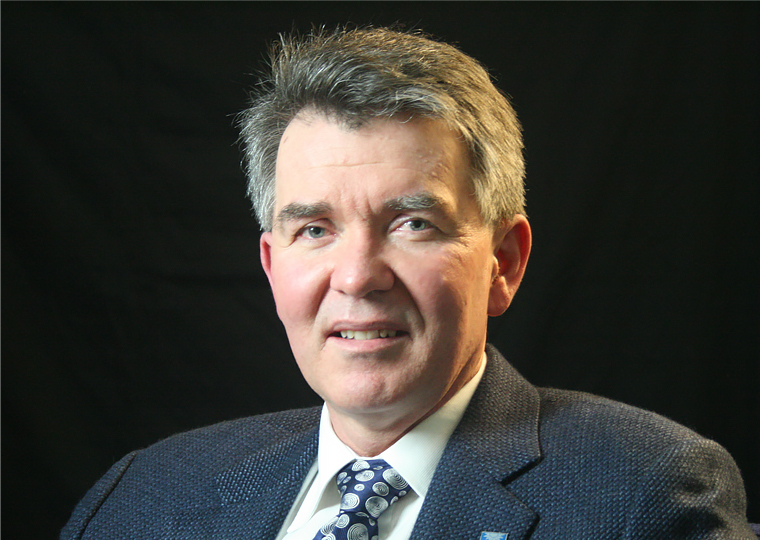News
Going back to work is considered good for you – but what is ‘good work’?
The benefits of work have long been known, and GPs have been asked to facilitate a return to work as soon as possible. But experts warn practitioners have to differentiate between good work and bad work to make the correct decision.
 Work that engages, provides a safe environment and life balance is good for both the company and the individual.
Work that engages, provides a safe environment and life balance is good for both the company and the individual.
GPs are being asked to consider whether they are sending their patients back to good or bad work before encouraging a return to employment.
Dr Amy Ho, who represented the RACGP on the Royal Australian College of Physicians’ (RACP) Health Benefits of Good Work Signatory Steering Groups, told newsGP studies show that long-term absence from work can be negative.
However, she said that although the focus has initially been on the benefits of work, it has now shifted specifically to what is called ‘good work’.
‘We realise … we have got to send patient back to a healthy work environment,’ Dr Ho said.
‘Work that actually makes them feel good.’
But Dr Ho said that a patient can sometimes be sent back to a work environment that is toxic and therefore harmful towards their health.
‘A lot of doctors don’t understand what is bad work, what is good work. [They think] work is work,’ she said.
‘So quite often they are also not assessing the patient correctly to find out what sort of work they do. Whether the work they can go back to is actually safe enough or good for the patient to return to in some forms of employment.’
Dr Ho said those involved in helping the patient get back to work should assess the environment for the patient and determine what is actually good work and bad work.
 Dr Amy Ho says a patient should only be sent back to work that makes them feel good.
Dr Amy Ho says a patient should only be sent back to work that makes them feel good.
Dr Graeme Edwards, Regional Chair of the Faculty of Occupation Environmental Medicine at the RACP, told newsGP there is a need to promote more good work that is going to displace the not so good work.
‘There are four domains of good work,’ Dr Edwards said.
‘The first one is that it engages and, where necessary, it partners with key stakeholders.’
Dr Edwards said management gurus like Peter Drucker identified in the 1950s that it is the system of managing people that is deficient.
‘People want to do the best job they can under the circumstances they find themselves in,’ Dr Edwards said. ‘So at an individual level what engaging means is … each of us can go about our daily tasks and rely on other people to provide the information that we need to do our job.
‘That requires a level of confidence and understanding of the system by which we get the information we need, whether it is a GP or whether it is in a manufacturing process or sales process; doesn’t matter which industry, we still need to be able to do our job effectively. So if we do that and someone else benefits and in that process we as an individual feel that we are positively contributing to the collective whole.
‘But at the business level it means it is the process engineering that provides the continuous improvement and applies the principals of good management practice to enable effective engagement and partnering with the stakeholders to the business or to the individual.’
 Dr Graeme Edwards says the conversation has shifted from ‘work–life balance’ to ‘life balance’ because life and work are not separate.
Dr Graeme Edwards says the conversation has shifted from ‘work–life balance’ to ‘life balance’ because life and work are not separate.
Dr Edwards said the second domain of good work is engaging with community and the culture, reflecting the local and the regional and operational context in which the work is performed.
‘So what that means is that we recognise the social responsibility that an organisation has to the culture from which they are drawing their workforce, but also recognising their social responsibility to where the business is providing its services,’ he said. ‘People simply feel better about their work when the business values are known to their local community.
‘When you are dislocated from the community – for instance if you have got mining company in WA and you have got a worker who flies in and out from the east coast to their worksite – they have no connection with where the work is being done, so there is level of frustration. There is a level of disconnection with the work and the workplace environment.’
The third domain is procedural justice in relation to fairness.
‘The promotion of stability and the absolute intolerance of instability because it is the tolerance of instability that is the breeding ground for discrimination and bullying,’ he said.
‘So good work is defined in part by how robust and how efficient the concepts of procedural justice and relational fairness is manifested within an organisation. So … how easy is it to deal with a grievance?
‘If you have got an organisation that is resistant and does not have the systems in place to deal with a grievance because of interpersonal or because there is something that is not quite right, the system itself is deficient and … does not promote good work.’
Dr Edwards said the final domain is about balance and design and a workplace that balances the job demands, the job control, the level of workplace support and the level of job security.
‘So in an increasingly insecure employment environment, what is that enables people to have a sense of good work when historically they might go to work every day for the next 30, 40 years and they stay employed by the same employer?’ he said.
‘We are looking at clear and realistic performance indicators … having hard and transparent people productivity metrics, in terms of how you actually assess and manage and steer people into the direction that we want them to go.’
Dr Edwards said it is about matching the nature of the work and the nature of the individual so there is a good fit between the individual and the work that is required.
This, he said, requires managing the psychological wellbeing and, from a managerial level, having an appreciation of what makes a psychologically safe workplace.
‘So this is all about life balance … historically you hear people talk about work–life balance … what we realised was that the concept itself of work–life balance misdirects the psyche,’ he said.
‘Because it suggests to you that work and life are separate, when the vast majority of us actually spend the majority of our waking day in some form of gainful occupation.’
Providing good work, he said, is better for the health of the individual and the health of the company’s bottom line.
‘From a commercial perspective, if you do all this … reasonably then the evidence suggests that it increases the financial performance of the business,’ Dr Edwards said.
‘The indicators such as the earnings before interest, taxes, depreciation, and amortisation, so what is called EBITDA, that is 2.4% times higher than those organisations that are doing it relatively poorly.
‘So if you do it, and do it well, it distinguishes in terms of the financial performance of the business compared to those businesses that are not doing it.’
good work Royal Australian College of Physicians work-life balance
newsGP weekly poll
As a GP, do you use any resources or visit a healthcare professional to support your own mental health and wellbeing?